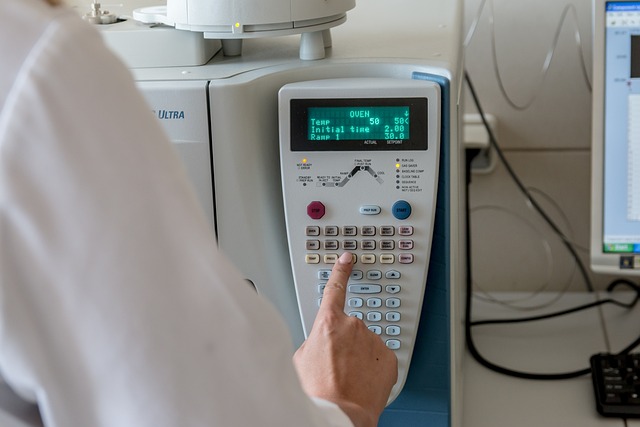In the UK, Liver Function Tests (LFTs) and Cholesterol Blood Tests are crucial for assessing liver health and cardiovascular risk. LFTs detect enzymes indicating liver inflammation or damage, while cholesterol tests monitor LDL and HDL levels, aiding in diagnosing conditions like fatty liver disease and coronary heart disease. Abnormalities in total cholesterol, ALT, AST, bilirubin, and GGT require further evaluation to manage and prevent serious health issues.
In the realm of medical diagnostics, understanding liver function tests (LFTs) is crucial for identifying potential liver issues. This article guides medical professionals through the intricacies of LFTs, focusing on a key procedure: the UK Cholesterol Blood Test. We’ll explore what these tests measure, their significance in evaluating liver health, and interpreting results, including normal ranges and potential abnormalities. By delving into these aspects, healthcare providers can effectively navigate this vital test.
- Understanding Liver Function Tests: What They Measure
- The UK Cholesterol Blood Test: Significance and Procedures
- Interpreting Results: Normal Ranges and Potential Abnormalities
Understanding Liver Function Tests: What They Measure
Liver function tests (LFTs) are a crucial set of blood tests that provide essential insights into the health and functioning of your liver. These tests are commonly used by medical professionals to diagnose, monitor, and treat various liver conditions in the UK. LFTs measure several key enzymes and proteins produced by the liver, helping to identify potential issues such as inflammation, damage, or disease.
Key markers include alanine aminotransferase (ALT), aspartate aminotransferase (AST), alkaline phosphatase (ALP), gamma-glutamyl transferase (GGT), and bilirubin. An elevated level of these substances may indicate liver problems like hepatitis, cirrhosis, or other conditions that require medical attention. Additionally, LFTs can help monitor the effectiveness of treatments and track the progression of liver diseases, including those associated with high cholesterol levels in the blood, such as fatty liver disease.
The UK Cholesterol Blood Test: Significance and Procedures
In the UK, the Cholesterol Blood Test plays a pivotal role in managing cardiovascular health. This standard test measures the levels of low-density lipoprotein (LDL) and high-density lipoprotein (HDL) cholesterol in the blood. LDL, often referred to as ‘bad’ cholesterol, can lead to plaque buildup in arteries, while HDL, or ‘good’ cholesterol, aids in removing this plaque. The UK National Health Service (NHS) recommends regular screening, especially for individuals over 40 and those with risk factors like obesity, high blood pressure, or a family history of heart disease.
The procedure involves taking a small sample of blood, usually from a vein in the arm. Medical professionals then analyze this sample to determine cholesterol levels. Results are communicated to patients, who can use them in conjunction with other health indicators to make informed decisions about their diet, lifestyle, and any necessary medications. Regular monitoring through the UK Cholesterol Blood Test is crucial for maintaining heart health and preventing conditions like coronary heart disease.
Interpreting Results: Normal Ranges and Potential Abnormalities
When interpreting results from a standard liver function test (LFT), understanding normal ranges and potential abnormalities is crucial for Medical Professionals in the UK. A cholesterol blood test typically measures various enzymes and proteins that provide insights into liver health. The normal range for total cholesterol levels, for example, is generally below 5.2mmol/L. Elevated levels may indicate issues such as high cholesterol or lipid disorders, which require further investigation to prevent cardiovascular risks.
Abnormalities in LFT results can point to a wide range of conditions. Elevations in enzymes like alanine aminotransferase (ALT) and aspartate aminotransferase (AST) may suggest liver inflammation or damage. High levels of bilirubin could indicate bile duct obstruction or haemolytic anaemia. Medical professionals should also pay attention to gamma-glutamyl transferase (GGT), which can be elevated in cases of alcoholic liver disease, medication-induced liver injury, or biliary tract disorders.
Liver function tests, particularly the UK cholesterol blood test, are invaluable tools for medical professionals in assessing liver health. Understanding what these tests measure and how to interpret results within normal ranges is crucial for early detection of potential abnormalities. By navigating the significance and procedures of the UK cholesterol blood test, healthcare providers can effectively monitor and manage liver-related issues, ensuring optimal patient care.
